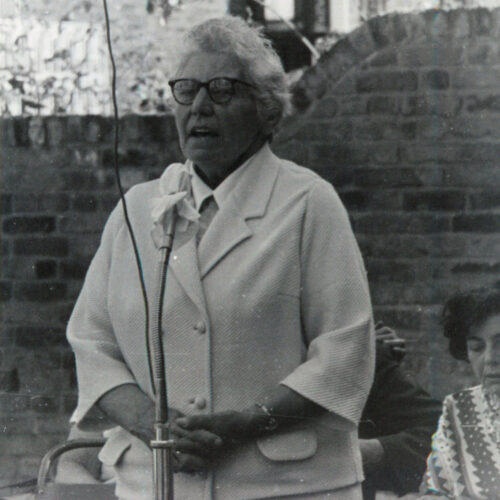

Rose Bush was a member of the South Place Ethical Society for over 50 years, and a driving force in the Humanist Housing Association. Not only a key figure in the life and work of these groups, she was remembered as a singularly warm, honest, interested, and interesting human being: the ‘living embodiment’ of South Place, and of humanist values.
Rose Bush was born on 6 June 1898 in Coventry, the daughter of a builder and the second of eight children. Her father was actively involved in the Evangelical International Bible Students Association, and her upbringing was accordingly religious. As a young teenager, Rose applied herself studiously to the movement, but growing doubts and a move to London in 1916 introduced her to South Place, which became a home for the next half century.
Once in London, Bush worked in the City, and then for the London County Council. A witness to both World Wars, she applied her skills and personality willingly in aid of others. During the first, she travelled regularly (and in the early morning hours) to the major train stations to greet troops with tea and sandwiches. During the second, she joined London’s fire and rescue services, driving heavy vehicles during air raids.
Bush was drawn most to the writings of Bertrand Russell and Julian Huxley, who best expressed her own humanist beliefs. True to the tradition of South Place and the other ethical societies, she became actively involved in a number of practical efforts to improve society, notably as secretary of the Progressive League, and through the Humanist Housing Association. This latter was established to provide housing to all, regardless of religious faith, with many housing associations at the time funded by religious bodies. Bush was closely involved from its earliest days, and took a particularly active role in facilitating communication and good faith between tenants and the committee. Rose Bush Court in Hampstead was named for her.
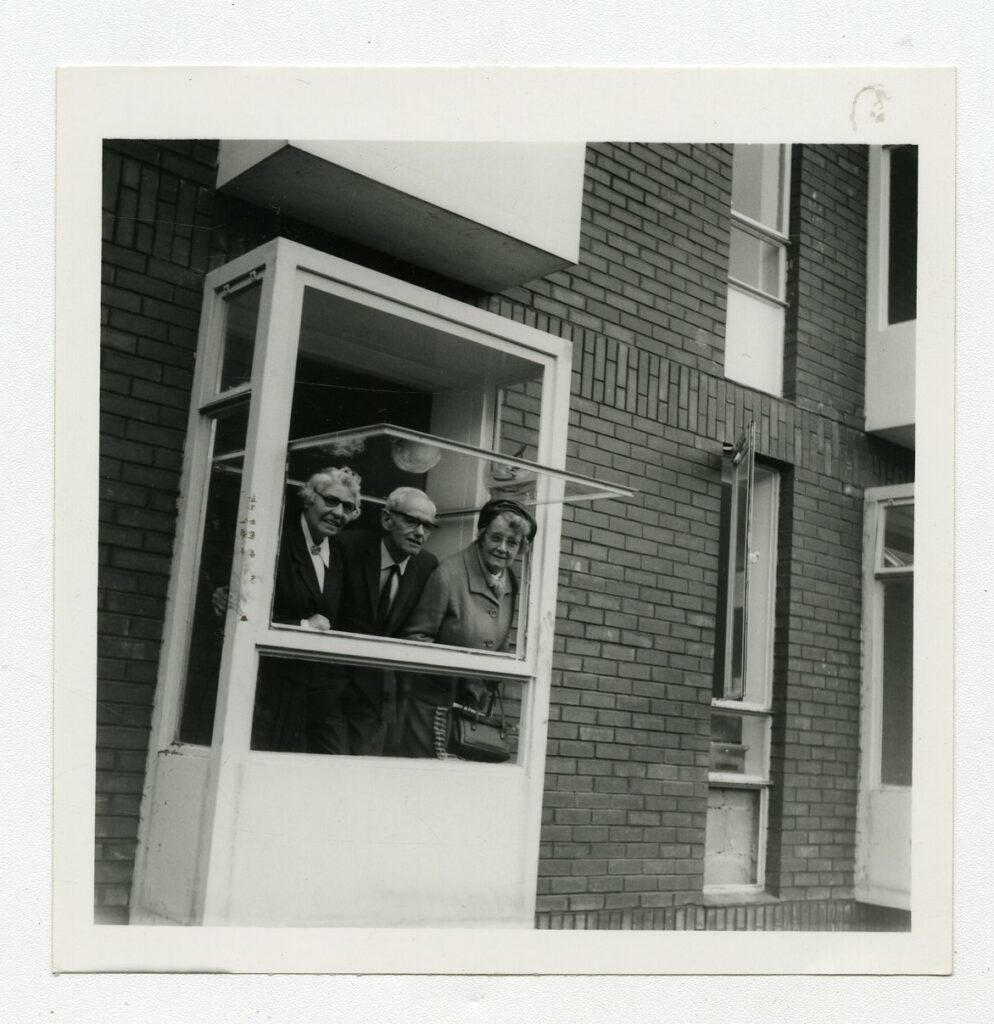
Bush was knocked down by a car outside Waterloo Station, and her death was a great shock to all who knew her. As Peter Cadogan wrote in the Ethical Record:
Normally, with someone in her eightieth year one might regard death as natural to the cycle of life. With Rose, however, it was different. She had an ageless character and was as active as ever. It is as though someone who was still young has died.
The heartfelt testimonies published by friends and colleagues in the months following her death made clear the depth of influence Rose Bush had in life. She was noted for her warmth, humour, integrity, and ‘unfailing good temper’, all of which had left South Place ‘richer for her work and presence’ for so many years. As Cadogan concluded his own recollections:
She was always a wise counsellor and good friend. It was her extraordinary sensitivity to people and circumstances that made her a very special person. She had an infinite capacity for caring, self-effacement and forgiveness. We have her memory and example if we no longer have her in person.
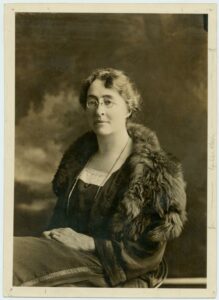
Mary Sheepshanks was a humanist who saw her feminist, pacifist, and cosmopolitan beliefs as being natural expressions of her humanist […]
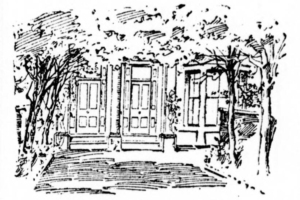
Order is our Basis; Improvement our Aim; and Friendship our Principle. Annual Report of the Neighbourhood Guild, 1895 Leighton Hall […]
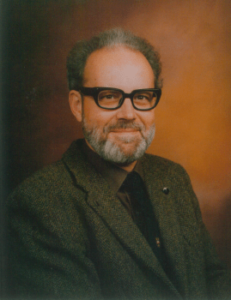
Humanism involves not just the deletion of God from moral thought, but the development of humanity on a rational and […]

While much of the Humanist Heritage website looks back to the earlier years of the organised humanist movement, recent decades […]